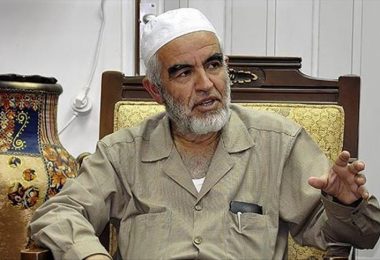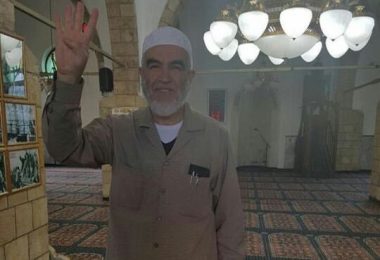Ebrahim Moosa | Palestine Information Network
In everyday conversation, it has become routine to view Masjid al-Aqsa through the prism of conflict, suffering and injustice. This is no doubt the consequence of decades of crimes in Bayt al-Maqdis, and the ongoing occupation of the Masjid.
Commenting on this widespread characterisation, in a recent online discussion, Palestinian scholar and activist Sheikh Raed Salah advised a rethink of the kind of language employed to discuss and express solidarity with Masjid al-Aqsa.
“Our rhetoric has to be positive,” he exhorted. “Yes, Al-Aqsa is under occupation, we see it live before our eyes. Still, we have to be positive, and present our ideas positively, because it is a Quraanic prophetic promise that this is a victorious issue. Why then, do we have to sound desperate and negative?”
As we remember the Isra and Mi’raj, and its inextricable connection to Masjid al-Aqsa, I find it worthwhile to share the reflections of researcher in Islamicjerusalem studies, Dr. Abd al-Fattah El-Awaisi, on how this majestic journey, and by extension Masjid al-Aqsa, represents hope for the Ummah, and, as such, can be an example of the positive language we can employ in speaking about al-Aqsa.
Mi’raj, he points out, occurred at a harsh and critical time when the Prophet Muhammad ﷺ and the oppressed Muslims were enduring all kinds of injury, challenges and persecution by their people in their home town of Makkah. This had become worse for the Prophet ﷺ, especially after the death of his guardian uncle Abu Talib, and that of his beloved, caring and trusting wife Khadijah, his strongest moral and financial supporter who passed away in a similar period. The deaths of these two most significant individuals in the year that came to be known as the Year of Sorrow, added anguish to a climate of overall suffering and oppression. On top of this, the Prophet’s ﷺ quest for a new base in Taif ended unceremoniously, as the chieftains incited their ruffians and slaves to insult and pelt the Beloved of Allah ﷺ, injuring him until he bled.
It was in the wake of this progression of distressing setbacks that Allah ﷻ raised His Beloved servant ﷺ physically to Him, and furthermore chose Masjid al-Aqsa as one of the arenas for this honour to be manifested. Al-Aqsa, thus, was for Nabi Muhammad ﷺ not a place of grief and despondency, but a shining land of hope.
In a similar vein, El-Awaisi references how the same was true of this Blessed Land in the case of Sayyiduna Ibrahim (AS), another of the high ranking Prophets. After being rejected by his people in Iraq and their attempt to incinerate him, Allah ﷻ rescued him as well as his nephew, Sayyiduna Lut (AS), to the land that was blessed “for all the worlds” (Qur’aan 21:71).
Taking a cue from experiences of the two most esteemed Ambiyaa, we appreciate how Bayt al-Maqdis, has always been a symbol of hope for Muslims.
“Even with all the turmoil and troubles in the region,” writes El-Awaisi, “it still represents for contemporary Muslims the land of hope for the future.”
In chronicling the Isra, the Qur’an identifies barakah as being a salient feature of Masjid al-Aqsa and its surroundings. Among the manifestations of this barakah are: multiplication of reward for salaah therein, its association with the Prophets, the demise of tyranny and crushing of oppression upon its lands, and it standing forth as a beacon of hope for the believers.
One of the greatest honours afforded to the Messenger of Allah ﷺ on the night of Mir’aj was the physical illustration of his status as Imam al-Ambiyaa and Khatam an-Nabiyeen, when he led all the Ambiyaa in Salaah at the precincts of Masjid al-Aqsa.
As much as this was an honour bestowed on the Beloved of Allah ﷺ, it also is a source of great pride for members of his Ummah, as this represents the occasion when the mantle of the leadership of humanity was formally passed on to followers of the final Nabi ﷺ.
On the remembering of the Isra and Mi’raj, we take solace in the lessons of hope drawn from Masjid al-Aqsa, and remind ourselves that just as the Ummah of the Prophet ﷺ took in its hand the honour of leadership of humanity at Masjid al-Aqsa, it likewise cannot recover its status and izzah except with Masjid al-Aqsa in its hand.







